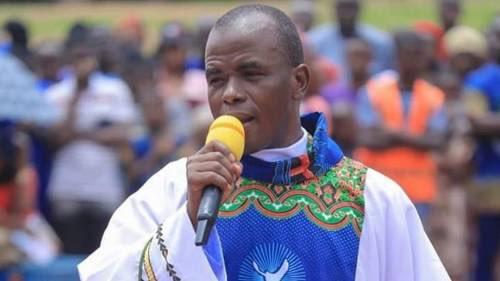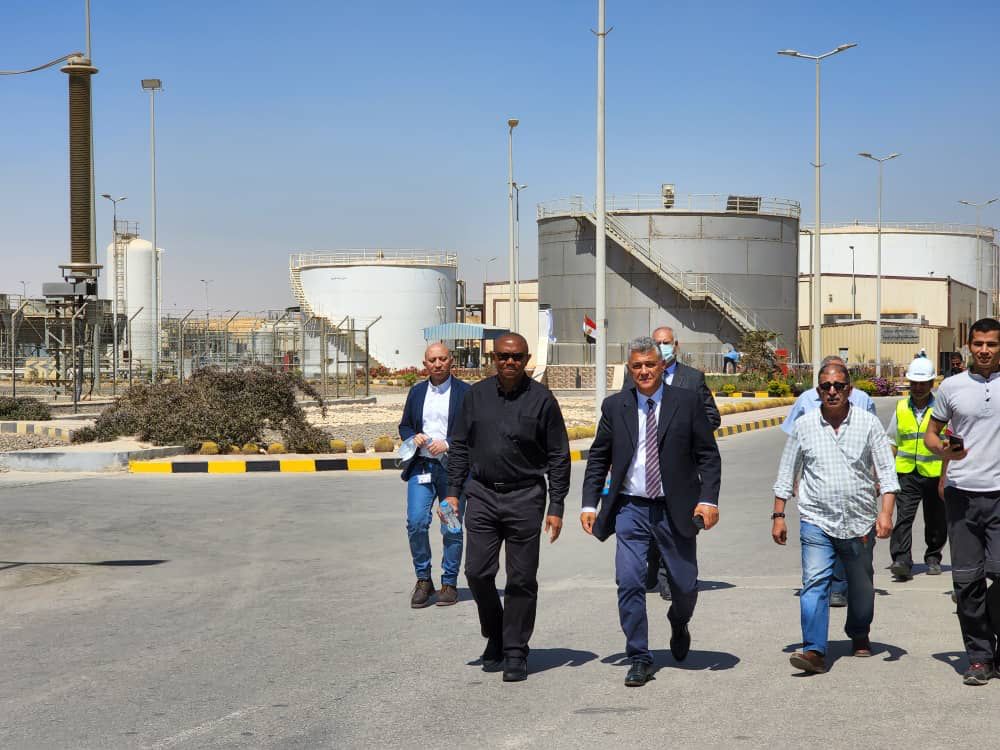The outcome of our presidential nominations season has produced a new landscape of mixed blessings. The two major parties have produced rival contestants straight from the dark recesses of Africa’e political past. Atiku Abubakar and Bola Tinubu are in many ways a throw back to the African ‘Big Man’ politician of the 1970s to 1990s. On the contrary, a minor party, the Labour Party, has positioned a presidential candidate who symbolizes the urgent present and the imminent future of African political contest. Mr. Peter Obi has emerged as both a generational shift and a redefinition of both political message and medium. The politics of business as usual is about to come face to face with the politics of norm shattering conveyed through the multiple devices and platforms of the internet age.
It is hard to forget where and who we are. In Nigeria’s politics of ethnic identity, Tinubu is a Yoruba candidate while Atiku is the Hausa/Fulani opposite. Peter Obi is the candidate of ethnic anonymity, a sort of political everyman with perspectives that cut across all the silly barriers that have held us hostage.
There are other benefits of the presidential nominations season. A partisan frenzy has been unleashed. The public is falling over itself either in triumphant adulation or mournful regret over the emergence of Atiku Abubakar and Bola Tinubu as mascots of the dominant parties. The emergence of both men replaces the anonymity of their respective party platforms with recognizable names. Overnight, those who prefer the PDP have become Atiku devotees whether or not they like Mr. Atiku’s nose or not. The same goes for the other side. People who a few weeks back were ready to cast stones at anything that bore a Tinubu sign are now finding justifications on why the man should relocate from his Lagos Bourdillon home to Aso Rock Villa.
The epidemic of partisanship is of course a healthy sign for our quirky democracy. Schism and alignment are perfect entitlements of an activated public in a place of democracy. Moreover, in the absence of any ideological markers to distinguish between the parties, people are better off queuing up and falling over each other behind emblems.
A tragic feature of today’s African democracy is the ease with which the parties become extensions of the private political estates of their overbearing founders or leaders. At this moment, the APC is now synonymous with Tinubu while the PDP has become Atiku Abubakar by other means.
Together, both men are political Siamese twins. They represent an easily recognizable feature of Africa’s political landscape. Somehow, they are in many ways our own version of the reign and rule of the African “Big Man” as sovereign. They will carry the imprints of the modern African nation state mostly as pseudo traditional chiefs disguised as elected presidents. Both are immensely wealthy men. Their political prominence is mostly a product of their awesome economic power. They have used economic power to buy into and invoke the major classic indices of power. They have bought into primordial traditional authority by overwhelming the traditional institutions. They even influence the appointment of some traditional rulers. They control and endorse religious authority by donating churches and mosques. They own media houses and powerful information platforms and channels.. They have amorphous families sometimes with multiple spouses and offspring. Both men have an identical political trajectories with many previous attempts at the top job. Their humongous wealth spans all major sectors. Those interested in following their big money usually get lost in the confusing hazy borderline between private fortune and the public treasury. Some inquisitive people end up in the confusing intersection between private fortune and privileged access to the public treasury in one way or the other.
The political gravity of both Bola Tinubu and Atiku Abubakar is ultimately more a function of their economic and financial leverage than the ideas and policy propositions they are associated with. In each case, the emergence of a personality cult is well within reach in spite of the constraints of constitutional conformity. African history is littered with the nasty footsteps of a succession of African ‘Big Men’. Teodoro Obiang Nguema Mbasogo of Equatorial Guinea. Paul Biya of Cameroun. Denis Sassou Nguesso of Congo Brazaville, Jose Eduardo dos Santos of Angola, Mobutu Sese Seko of former Zaire. These are the more memorable variants of the Africa Big Man president.
The African Big Man as modern day ruler of the nation state is a quaint anomaly, the cultural continuation of the fabled African Chief in most traditional African cultures and societies. The Chief is the inheritor of privileges beyond reproach or questioning. He has a natural entitlement to communal assets and benefits. The Chief expects to be gifted the best maidens, the fattest cows, the most fertile communal lands and the best harvests from those who toil. These entitlements are hardly subject to questioning. The modern African Big Man president feels a similar sense of entitlement.
In practice, the existence of a national constitution hardly regulates or limits the powers and entitlement of the African Big Man President. In most cases, the rule of law, the power of due process and the requirements of standard public accountability and the observance of a code of public conduct are mostly observed in breach. Civil society activists and rights lawyers who insist on these matters are quickly lumped with the political opposition ‘enemies of the people’ and could end up with endless prison terms.
The classic African Big Man ruler did not quite materialize centre stage in Nigerian politics in the 1980s and 1990s. This coincides with a period in which Nigerian politics and governance, like in Argentina and much of Latin America, was dominated by a rival but equally fearsome power contender: Big Generals. From the 1970s up to 1999 and even till President Buhari, Nigerian politics and power was straddled by Big Generals either in uniform or as elected democracy converts. As a rule, civilian political Big Men and Big Generals do not sleep on the same bed. This is one reason why the military neutralized the threatened emergence of Chief M.K.O Abiola in the early 1990s. In the current nominations of Bola Tinubu and Atiku Abubakar, the Big Man has re-emerged centre stage in Nigeria’s political arena through the democratic process.
However, the reign and rule of the few remaining African Big Men is doomed to imminent end. A combination of biological extinction and technological substitution will see to that. The few of this specie left are mostly in their mid 70s to 80s. They are being challenged and replaced by younger politicians with support bases rooted in a new demographics and new messaging. African democracy is now appealing directly to a broad popular demographic base with an egalitarian consciousness. A younger generation of leaders and aspiring leaders empowered and connected by the internet and an array of new technologies is on the ascent. International best practices are increasingly beaming the searchlight on African governance and politics. African democracies are being compelled, through peer pressure, to shape up to global standards of citizens rights and public accountability.
The younger generation of African political activists and leaders is no longer frightened by decadent myths, ancient customs or the deployment of medieval intimidation and repression strategies. Nor are they impressed by long motorcades, authorized state gangsters in the name of security or the sickening opulence of Big Men.
Out of the loud and wide expectation of a Third Force to counter Nigeria’s dominant two party politics, something unexpected has reared its head. The real unexpected tale from our season of presidential nomination primaries is the emergence of Mr. Peter Obi. Beyond being the flag bearer of a little known fringe Labour Party, Mr. Obi has materialized as a one man political squad. Somehow, the lone scraggy voice of an ex -state governor has risen above the national political noise to reach the usually fractious Nigerian public. A new message that is both refreshingly new and unifying is afloat.
With no retinue of groveling followers, no intimidating motorcade of glimmering SUVs, no political fellow travellers in over embroidered flowing gowns, Mr. Peter Obi broke loose from the suffocating embrace of his former PDP. At a disarming final moment before the presidential nomination primaries, he had the uncommon decency to say a polite good bye to Atiku Abubakar whose running mate he had been in the 2019 race. At another political event where Atiku declared his presidential intention, Mr. Obi described his former principal as ‘my brother’ and ‘leader’ only to take his leave of both the PDP and Mr. Atiku shortly afterwards.
Prior to leaving the PDP, Peter Obi had gradually emerged as a the darling of the Nigerian Online Republic. He is easily the most followed and admired political figure among Nigerians on Twitter where he has a following of over 1,000,000 and still counting. His Facebook, Instagram and Tik Tok followership is growing by the moment. So far, his few open forum events are packed with active audiences who only seem to want more of his inspirational political messages. He is already a cross between a power preacher and a rock star.
The Peter Obi phenomenon is a timely reversal of the old African Big Man narrative. Enter the youthful politician clad in simple outfit. He is determined to shorten the length of the presidential motorcade, curb wasteful governance, live modestly in simple circumstances, resist corruption, shun the filthy lucre, empty opulence and gradiosity of public office and avoid or curb the pomposity of state ceremony. Here is a leader who has undertaken to connect with the people as one of them. This is the regular Bayo, Emeka, Abu or Joe next door who wakes up early to pray for his nation, undertake his morning exercise, make his own coffee. Mr. Obi carries his own bag at the airport and holds up his own umbrella in the rain. Peter Obi’s increasing magnetism lies mostly in the fact that of all the political salesmen at our doorstep these days, he alone embodies the highpoints of the this new anti-Big Man narrative.
Peter Obi is communicating and connecting directly with ordinary Nigerians on the streets and in the markets. His catchment is a new strategic demographics of youth and the internet generation, the urban unemployed who see their hopeless situation as a consequence of the years of wasteful governance by Big Men politicians. But the traditional party membership and configuration still gives an advantage to the rural grassroot poor who remain in the vice grip of the politics and parties of Big Men.
In Nigeria’s emerging democratic culture, Mr. Pater Obi is the galvanization of the convergence of new realities and new technologies. Mr. Obi is merely the embodiment a new spirit and the carrier of a generational burden. An entirely new generation and vast population of Nigerians feel challenged to reject decades of bad politics and worsening social and economic conditions. Peter Obi is merely the current embodiment of a spirit that was hinted at by the spontaneous outburst of the ENDSARS protests. He may be the first political expression of the new spirit of protest against bad government and ugly social and economic conditions.
Peter Obi is still a fad, not quite a movement yet. There are pitfalls and obstacles. His solo dance is not yet a movement. His party platform still lacks a nationwide structure at the base. He fits rather untidily into the labour camp. No one knows his links to the Nigerian labour movement nor his ideological affinity to the movement’s leftist and left of centre inclination. His proposition remains at best a solo flight. His perspective are personal convictions. His life style and frugality are more of a personal choice. In his political train, there are no fellow travellers or disciples to convert his personal message into a creed. Beyond his instinctual appeal as a more frugal, unassuming and more accountable leadership proposition, we are waiting for a systematic worldview and alternative perspective in a world full of models and options.
Meanwhile, questions abound: Is Peter Obi a socialist? Not at all. Is he a social democrat? No one is certain. Is he a laissez faire capitalist or random trader who made good and stumbled into the government house in Awka? Not quite sure. Given his business antecedents as a bank owner, wine merchant, general importer, retailer of sundry wares and serial global investor, Mr. Obi would at best be a left of center politician with a personal life style of frugality, modesty and simplicity. All these qualities appeal naturally to a Nigerian public that has spent decades longing for a minimum level of modesty and accountability on the part of our leaders.
The immediate political risk confronting Mr. Obi is that of insulating his movement from ethnic pigeonholing. An Igbo mass who cannot find their own among the major political figurines of this season may want to own Peter Obi. His communicators must duck that trap by sustaining his nationalist and popular message.
On closer examination, there may be issues arising from the alternative leadership style and culture that Mr. Obi is increasingly symbolizing. The politician with a disciplined Spartan life style and compulsive frugality in government may be new in these parts but it is not entirely a novelty in other places. It is in fact a common feature of post industrial European countries. When industrialization and economic development has created reasonable egalitarianism and prosperity, material glamour and glitz stops impressing the majority of citizens. Leaders become more of everyman. Utilitarian functionality replaces grotesque opulence and senseless gadgetry. Substance replaces appearance and the lofty insensitivity of kings and princes gives way to the modesty of republican equality. Nigeria is not an industrial let alone a post -industrial society. Government still remains the cash machine that sustains the economic life and livelihood of the majority of our citizens.
Peter Obi’s message is mostly about shrinking government and freeing resources for development. But government and its wasteful ways employs a multitude. Our huge public service is more of a social insurance mechanism than an engine of growth or bureaucratic functionality and efficiency. Sometimes the foolish ceremonies of government create employment. When a Nigerian government stages an elaborate ceremony to dish out awards to ‘deserving’ Nigerians in an annual festival, all the multiplier effect of moving a crowd of people from various parts to Abuja are activated. Hotels. Airlines, transporter, food vendors, dress makers etc reap a harvest.
Mr. Peter Obi has come to serve notice on our behalf: Bola Tinubu and Atiku Abubakar (whoever wins in 2023) are perhaps the last Big Men that will rule Nigeria. Similarly, we have seen the last Big Generals in power. After this season, political contest and power will revert to a majority in a true republic. Mr. Obi’s emergence has value as a timely signal of the direction in which a new consciousness and new technologies will lead Nigeria long after the last Big Man has exited the central place of power.


